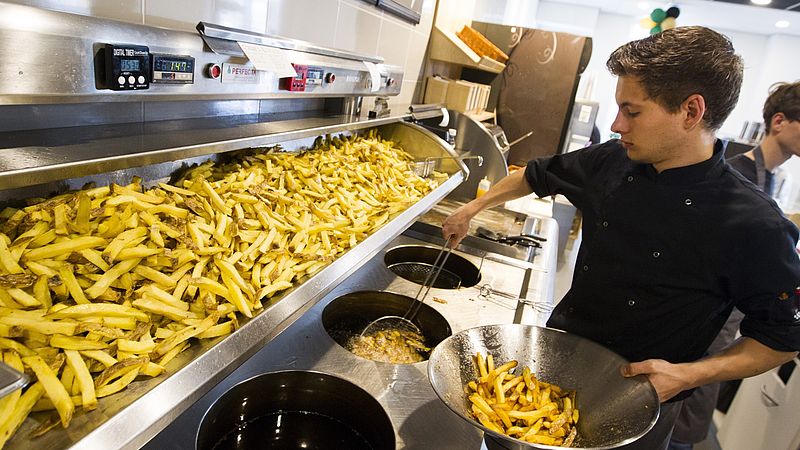To combat obesity, the cabinet wants fewer snack bars near schools. Childish, thinks columnist Özcan Akyol. And he says it doesn’t work either. But is that really so? Experts do see the benefits of it.
The cabinet wants to reduce the supply of fast food and will start doing so near schools. “It shows little faith in people,” says columnist Özcan Akyol. “Patient is not the solution. Information is.”
Not a rational choice
But is that true? “We think we make rational and well-considered food choices, but in fact we only make about 10 percent of our choices very rationally. And 90 percent don’t, not even when it comes to food,” says Liesbeth Velema, nutrition and behavior expert at the Nutrition Center.
That is also the reason why she says that such a ban does work. “I don’t think that’s patronizing, and fortunately a lot of people don’t think that anymore,” she says.
also watch
‘Driven by industry marketing’
“It’s actually the other way around: we think we are free to make choices, but we are unwisely guided by, among other things, the marketing of the food industry,” says Velema. “They steer us towards unhealthy choices. In fact, that is precisely the patronage.”
Professor of Nutrition and Health Jaap Seidell also says that such measures can work. “Banning one chain does not necessarily help, but you can see that some neighborhoods are completely sufficient: that does matter.”
Food environment of importance
Being overweight has several causes, says Seidell. “But the food environment is definitely one of them. Every scientist agrees that the food supply in a neighborhood also largely determines what people eat and how heavy they become.”
Is that snack bar on the corner really the cause of obesity in children? In Belgium they know the answer. Scientists looked at the food environment of all schools in our neighboring country, between 2008 and 2020. “We have seen that in schools with an unhealthier offer the percentage of overweight children is significantly higher than in schools where the food environment is healthier,” says Stefanie Vandevijvere. , researcher of Sciensano.
–


